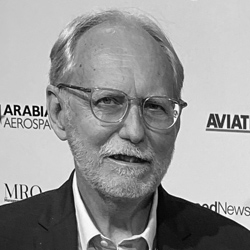Workshops on the road to repair
As lack of investment in MRO forces African airlines to ground aircraft, there are encouraging signs in North Africa of ways around the impasse.

Leap year: Sanad opened the first certified LEAP engine MRO centre in the SAMENA region in November 2023. PICTURE: Sanad
Africa finds itself chronically subject to trends that are causing problems for the aviation sector in general and MRO in particular. Oliver Wyman’s recent Global Fleet and MRO Market Forecast said recovery from the Covid-19 pandemic remained stubbornly slow; in 2020 alone, Africa’s aviation sector lost $7.7bn in revenue.
Other challenges included inflation, shortages of raw materials, and shortages of skilled labour, including maintenance technicians and engineers. The industry must modernise and optimise production along the supply chain, while the MRO support network faces similar challenges in keeping aircraft operational.
"While the industry must invest in overcoming those challenges, it’s important to remember that it’s not easy for it to do so at present, according to several trends," said André Martins, partner and head of transportation and services for India, Middle East, and Africa regions (IMEA) at Oliver Wyman.
Captain Ado Sanusi, managing director of Nigeria’s Aero Contractors, told This Day newspaper that airlines were “dropping aircraft” rather than booking them in for mandatory checks, while other aircraft remained out of service over unpaid bills.
He blamed the economic situation in Nigeria and the scarcity of dollars for a situation where operators chose to ground aircraft that are due for checks. Meanwhile, aircraft also remain stranded in Europe and Turkey, waiting for their maintenance bills to be paid.
The result, said Sanusi, is cancelled flights and under-used airports, a situation that was only going to get worse as demand rose.
His company, he said, was expanding its MRO capabilities with enough hangar space to conduct two C-checks at the same time, and was in talks with Honeywell on opening an APU overhaul workshop.
Amos Akpan, managing director of Flight and Logistics Solutions, said the situation was sufficiently dire that “consultants are asking would-be investors in scheduled airline operations to hold on as they watch situations in the industry.”
A glimmer of good news comes from Sanad, the Abu Dhabi-based engine MRO specialist. Chief executive Mansoor Janahi told African Aerospace that one of the company’s “strategic goals” was to expand outside the UAE, and that Africa – “massively underserved and growing” – was one of its target regions, alongside India and Southeast Asia.
“We look at our partners – all the major engine OEMS and 30 different airlines,” said Janahi. “We have the industrial and technical knowledge, networks of partners and customers, and we want to be in growing markets.”
At this year’s Farnborough Airshow, Sanad added to its impressive list of partners when it announced a deal with Airbus to provide MRO services for engines powering the European OEM’s narrowbody and widebody models.
Sanad had identified EgyptAir Maintenance and Engineering (M&E) as a potential partner before signing an MoU at the 2023 Dubai Airshow to provide flat-rate component repair services. “Partnering with EgyptAir M&E ought to help us expand our capacity,” said Janahi. The arrangement was “like plug and play”, he added. “Some of the capabilities they have mirror what we do here in Abu Dhabi.”
Both companies saw the deal as aligning with their home countries’ national economic strategies of expansion and diversification. For EgyptAir M&E, partnering with Sanad was an opportunity to exploit capabilities profitably, gain customer confidence, expand within Africa and the Middle East, support sister countries and achieve integrated cooperation with partners.
A statement on Sanad’s website said: “This strategic partnership is set to offer enhanced engine testing and MRO services, including the convenience of in-house engine part repairs in Cairo and Abu Dhabi. This innovative alliance is well-positioned to significantly expand Sanad and EgyptAir M&E’s customer base, bringing them closer to their customers in Africa and the Middle East.”
Both companies, it added, were “committed to pooling their substantial expertise and resources.”
When contacted in July, neither company had anything to say about progress on the initiative, with an EgyptAir M&E spokesperson saying only that negotiations continued.
Stay up to date
Subscribe to the free Times Aerospace newsletter and receive the latest content every week. We'll never share your email address.


